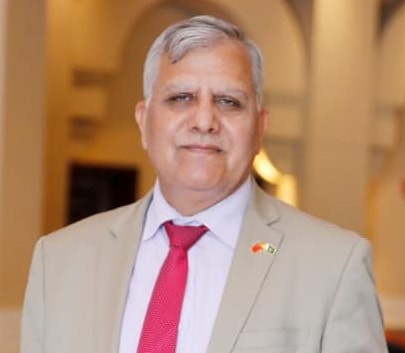By Prof. Engr. Zamir Ahmed Awan
The cost of living is the money needed to sustain a certain comfort level in a location. The cost of living covers basics like housing, groceries, taxes, and healthcare. Some countries have a very high cost of living, particularly in areas surrounding large cities.

On the flip side, some nations have a meager cost of living, so many people are packing their belongings to move to these countries. Especially, older people after their retirements, are shifting to countries where the cost of living is comparatively low and environments are friendly as, after retirements, they may depend on pension.
Several different organizations have used statistics to determine the cheapest countries to live in. One of these companies is GoBankingRates. This company uses four metrics to determine which countries are the most affordable. The metrics used include:
– Rent index
– Local purchasing power index
– Consumer price index
– Groceries index
The information compiled is compared to the cost of living in New York City, one of the most expensive cities in the world. According to this data, Pakistan is the cheapest country to live in, with a cost of living index of 18.58. This is followed by Afghanistan (24.51), India (25.14), and Syria (25.31).
On the opposite end, the most expensive countries to live in are the Cayman Islands (141.64), Bermuda (138.22), Switzerland (122.67), and Norway (104.49). All four of these countries have a higher cost of living than New York City.
The index confirms the stability in prices of daily commodities in Pakistan, making a living the most affordable and cheapest in the world. Contrary to it, worldwide, the prices of daily commodities spiraled, impacting the world’s most thriving economies amidst the coronavirus pandemic, which resulted in tumbling down of income per capita and a steep rise in daily inflation.
According to the US Department of Agriculture’s latest report, the global food supplies are expected to grow in 2021-22, the prices of daily commodities are driven by solid demand and supply shortfalls. A corresponding report by the United Nations Food and Agriculture Organisation (FAO) projected that world food prices were set to rise every month. The FAO’s food price index measured monthly changes for a basket of cereals, oilseeds, dairy products, meat, and sugar.
According to it, the vegetable oil price index jumped due to rising palm, soy, and rapeseed oil quotations. Palm oil prices were boosted by slow production growth in southeast Asia, while prospects of robust global demand, especially from the biodiesel sector, drove up soy oil prices.
The sugar index also posted a 6.8% month-on-month gain due to harvest delays and concerns over reduced crop yields in Brazil, the world’s largest sugar exporter, FAO said. The FAO also noted similar rising trends in the prices of almost all major edible items monthly as the world was still reeling under the impacts of Covid 19.
COVID-19 has not affected Pakistan as severely as it did to rest of world , and to its neiboring countries. Pakistan has suffered less damages as compared to rest of world.
Pakistan is an agricultural country, and agriculture contributes almost 70% of the GDP. That is why the food prices are relatively affordable. Pakistan’s strength is its substantial energetic and youth workforce. Youth contributes 70% of the whole population as under the age of 40. Pakistan.s climate and natural beauty also attract the world.
Although facing many challenges, yet is an ideal destination for many tourists and settlers after retirement. Many foreigners who visited Pakistan come back again. It is a friendly society and can accommodate any religion, race, or ethnicity. Pakistan is hosting several million Afghan refugees and a huge number of immigrants from Iran, Iraq, Syria, Myanmar, Bangladesh, India, and Africa. A diverse society makes everyone feel at home.
Pakistan is expected to soon attract more foreigners and create an international community where everyone can live in peace and harmony at a much lower cost of the lining. Pakistan is blessed with many strengths and yet needs to explore further collectively. Pakistan is an open and broad-minded society and welcomes everyone.
Author: Prof. Engr. Zamir Ahmed Awan – Sinologist (ex-Diplomat), Editor, Analyst, Non-Resident Fellow of CCG (Center for China and Globalization), National University of Sciences and Technology (NUST), Islamabad, Pakistan.
The article reflects the author’s opinion, and not necessarily the views of World Geostrategic Insights.







